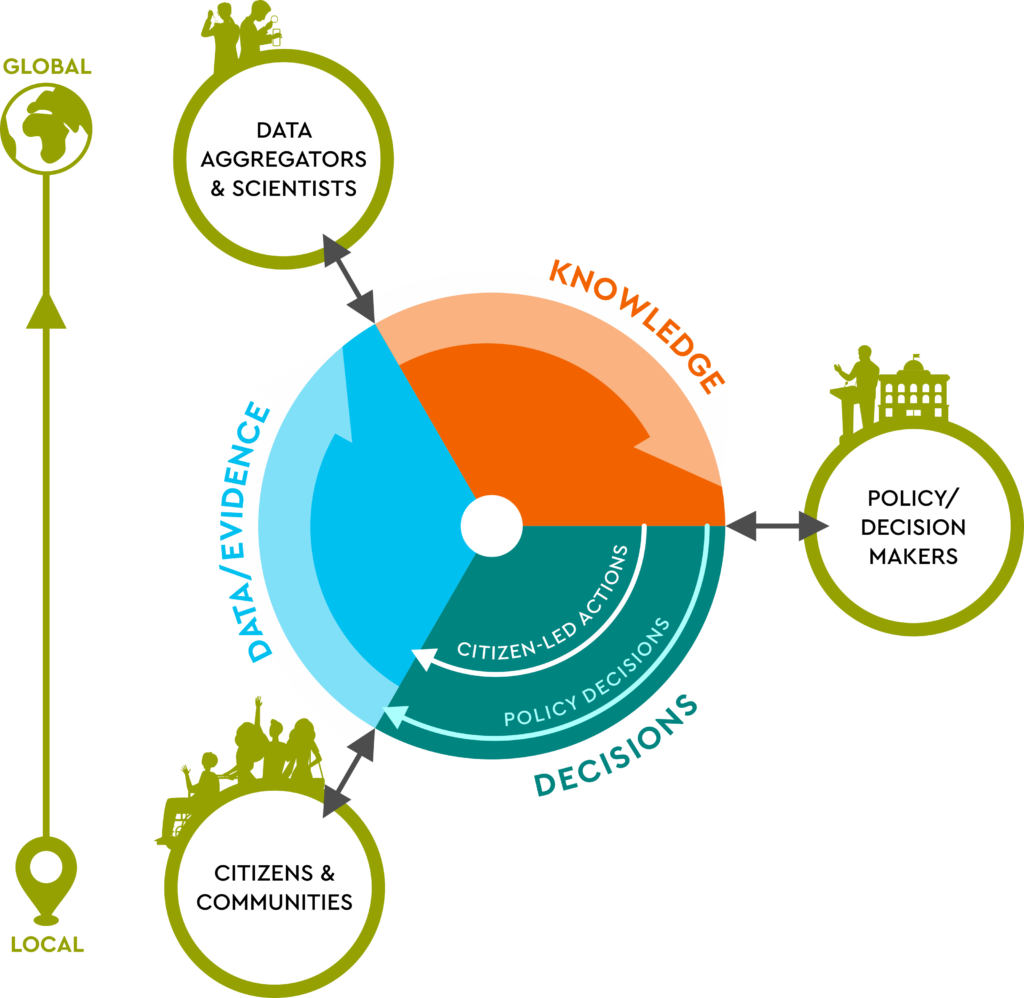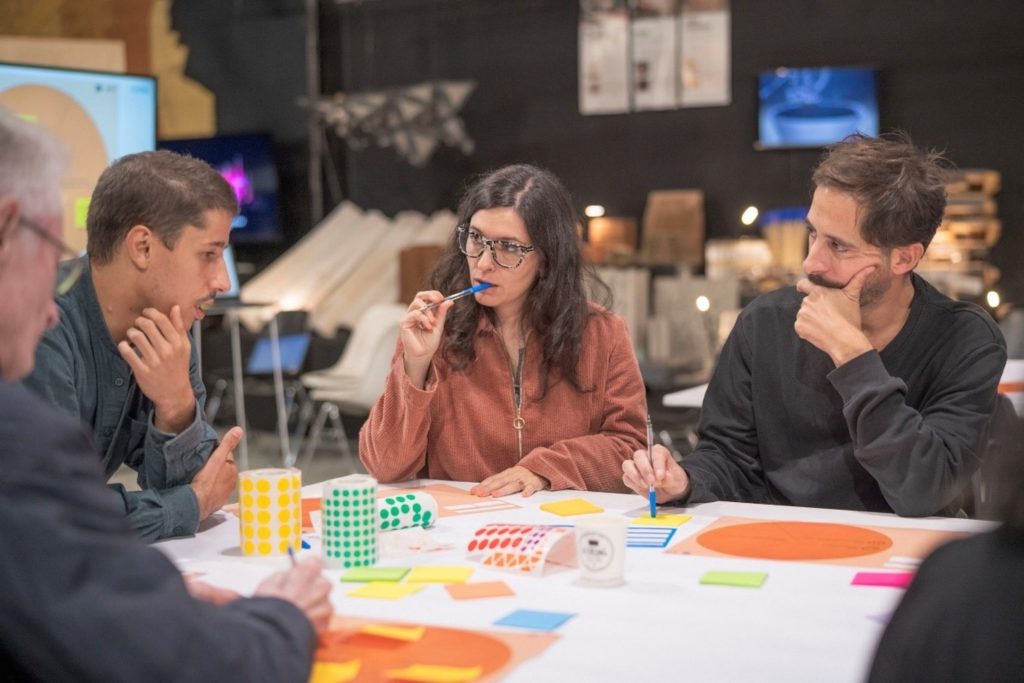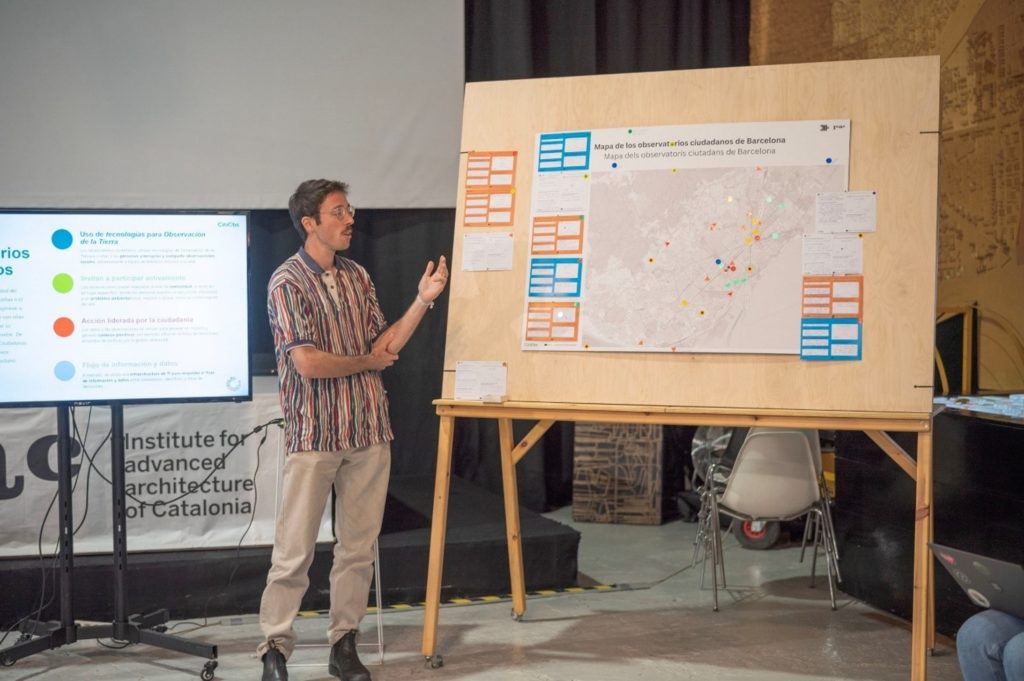Citizen observatories constitute a unique form of citizen science, building connections among citizens, scientists, and decision-makers to monitor local environmental issues and directly linking monitoring results to environmental policy. In this post, Kelsey Wentling and Uta Wehn (both from IHE Delft) elaborate on the intricacies of stakeholder participation dynamics in citizen observatories, recognizing the pivotal role such dynamics play in determining the success and sustainability of citizen observatories.
What are participation dynamics in Citizen Observatories and why do they matter?
Effective Citizen Observatories (COs) hinge on substantive stakeholder participation, i.e. citizens and communities, scientists and (local) authorities. Meaningful interactions, the manner and extent to which these stakeholders involve themselves in a CO, is directly shaped by the dynamics between the various participating groups and individuals.
Simply put: the ways in which stakeholders participate and interact directly impacts if and how they continue to engage in a CO, which can then affect the overall success of the CO. This principle underscores the importance of examining and navigating participation dynamics in Citizen Observatories.

Building on our expertise in this field, and work in previous projects such as WeSenseIt, Ground Truth 2.0, and MICS, we have developed and are now refining a tools for practitioners to understand CO participation dynamics in multi-level governance. This “toolkit” (in short: the CO Participation dynamics toolkit) will equip CO practitioners with tools to pinpoint and navigate common pitfalls that may prevent effective participation in their COs.
For example, it is well understood that building trust within a CO can either help or hinder stakeholders’ willingness to contribute to a CO. Imagine your own participation in a project where you trust (or perhaps do not trust) your fellow participants or the organizers – how does this influence your readiness to divulge information and participate in discussion? More likely than not, working in an environment of mutual trust will encourage you to participate more fully.
Understanding the dynamics that lead to trust building (or trust deterioration) can impact the overall outcomes and longevity of the CO. Taking this into consideration, it’s critical that CO practitioners are able to identify how trust is built among stakeholders, address anticipated challenges and create an environment that fosters trust among the specific participants in the CO. The final version of the CitiObs CO participation dynamics toolkit will help users identify such dynamics and offer resources to promote trust building for more sustainable COs. It will provide CO practitioners with resources for implementing methods that support and encourage aspects of meaningful participation in COs, such as identifying the root causes of problems, resolving conflicts between stakeholders, and ensuring uptake of Citizen Observatory generated data.
Evolving the toolkit through collaboration with partners and cases
Creation of this CitiObs CO participation dynamics toolkit, just like the other two CitiObs toolkits for addressing the social dimensions of COs, (see Who decides what is measured and acted on, and who is left behind? and Exploring the CitiObs "Citizen-Led Action Toolkit") has been, and continues to be, an iterative and collaborative process among the CitiObs partners who have diverse yet complementary backgrounds and experiences.

Photo from the workshop on Inclusive Engagement at the F2F meeting in Barcelona. Photo by Fab Lab Barcelona.
CitiObs partners engaged in discussions to identify potential overlaps across the CitiObs toolkits: inclusivity and participation are core tenets, addressed separately yet synergistically by the Leave No One Behind (LNOB) toolkit and the CO participation dynamics toolkit.
These discussions about toolkit synergies prompted the question of how to create complementary and easy-to-navigate tools for practitioners. To answer this, the project team revisited the foundational values of the CitiObs project, grounded in cross-cutting values described in a previous blog post about the Citizen Action toolkit, and carefully aligned and connected the different toolkits jointly addressing the social dimensions of COs.
To further develop the CO Participation Dynamics toolkit we also drew on several existing resources to inform both the content and structure of the toolkit, such as the WeObserve Cookbook. Consulting these resources, we initially collaborated with the CitiObs project partners to incorporate their feedback on how they could use the tools, from their own experiences, during a face-to-face session in Barcelona in July 2023. This approach is further detailed by our CitiObs partners in the blog post: Exploring the CitiObs "Citizen-Led Action Toolkit".
The CO Participation Dynamics toolkit is still a work in progress and will evolve further through iterative collaboration with Frontrunner Cities and Aspiration Cases. CitiObs is currently onboarding the five Frontrunner Cities, with dedicated mentoring teams helping put the toolkits into action. Initial feedback from CO practitioners in Barcelona, Athens, Dublin, Kristiansand and Rotterdam will strengthen the toolkit, ensuring it reflects the needs and interests of those who will use it.

Photo from the workshop on Inclusive Engagement at the F2F meeting in Barcelona. Photo by Fab Lab Barcelona.
Feedback from CO participants in these Frontrunner cities will help to further refine the toolkit for Aspiration Cases. At the same time, we are soliciting feedback from the CO participants in order to further adjust the CitiObs toolkit's structure and content for the Aspiration cases. This process, drawing on the principles of co-creation, allows for the design of tools that are accessible, salient and usable for participants in COs.
Get in touch!
We invite those working on similar topics to get in touch for potential collaboration, such as featuring your methods and resources for specific participation challenges in Citizen Observatories.
Also, stay tuned for updates as CitiObs progresses in its mission to empower citizen observatories for sustainable environmental monitoring and policy-making.


